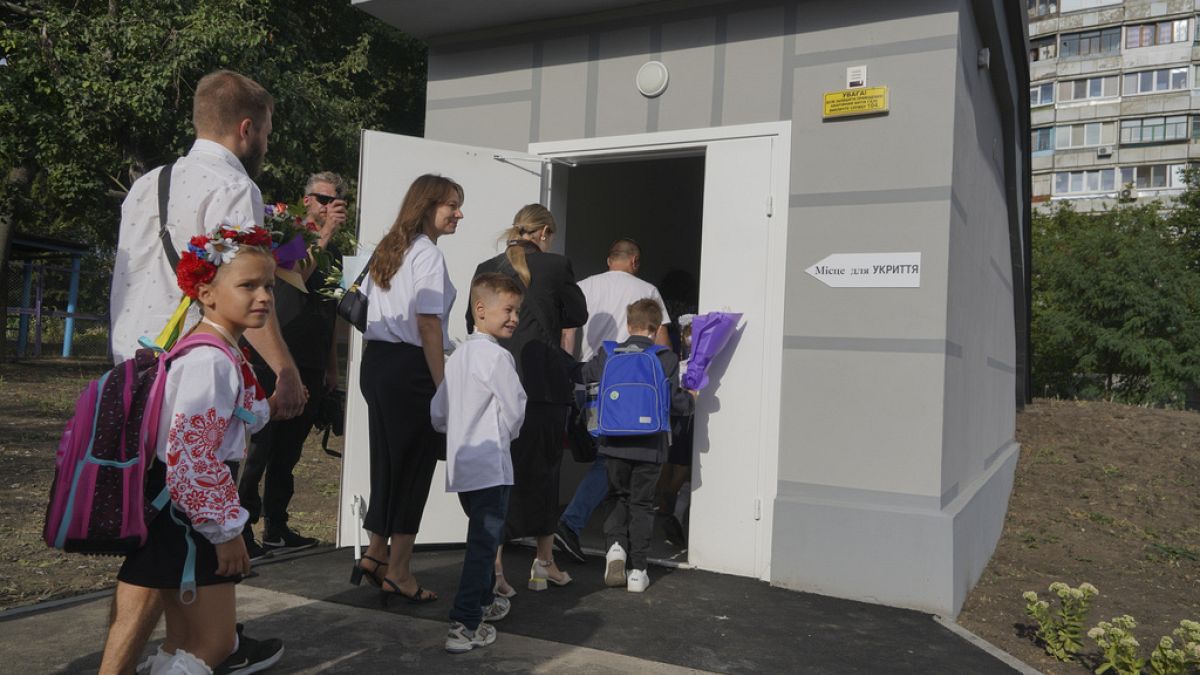The start of the academic year in Ukraine has been marred by ongoing conflict and disruptions in education. Ukrainian President Volodymyr Zelenskyy and Dutch Prime Minister Dick Schoof recently visited Zaporizhzhia, a city near the front lines, where classes are being held in bomb shelters due to the war with Russia. This visit highlighted the challenges faced by Ukrainian children, who have already experienced disruptions due to the COVID-19 pandemic. The explosions across Ukraine, including in the capital Kyiv, have led to damage to schools and nurseries, forcing some classes to be conducted in bomb shelters. Schoof’s visit also emphasized the international community’s support for Ukraine, with the Netherlands allocating over €200 million to Ukraine’s energy infrastructure.
The past few years have been particularly challenging for Ukrainian children, who first faced the COVID-19 pandemic and are now dealing with the effects of the ongoing conflict with Russia. The war has forced many Ukrainians to flee their homes, with some seeking refuge in neighbouring countries like Poland. Ukrainian children who have been displaced by the conflict are now facing additional challenges in accessing education, with a new Polish law requiring Ukrainian refugee children to attend school or risk losing financial benefits. This has put pressure on families who are already struggling to adjust to their new circumstances, with many children having to adapt to a new language and curriculum.
The visit by President Zelenskyy and Prime Minister Schoof to Zaporizhzhia highlighted the resilience of Ukrainian children and their commitment to education in the face of adversity. Classes being conducted in bomb shelters serve as a stark reminder of the impact of war on the lives of children, who should be able to learn and grow in a safe and nurturing environment. The international community’s support, as seen through the Netherlands’ allocation of funds to Ukraine, is crucial in helping alleviate some of the challenges faced by Ukrainian children as they navigate the consequences of conflict.
In Russia, President Vladimir Putin addressed students in Kyzyl on their first day back to school, expressing solidarity with children from regions near the border who have been forced to study online due to the conflict in Ukraine. The provision of bomb shelters in local schools in Kursk underscores the ongoing tensions in the region, with both Russia and Ukraine taking measures to protect students in areas affected by the conflict. Despite the challenges faced by children in both Ukraine and Russia, efforts are being made to ensure that education remains a priority and that normalcy can be restored for students in conflict-affected areas.
As the new school year begins, the focus remains on supporting Ukrainian children and ensuring that they have access to quality education despite the disruptions caused by conflict. The international community’s solidarity with Ukraine, as demonstrated by the Netherlands’ support, is crucial in providing resources and assistance to help children continue their education in challenging circumstances. As Ukrainian children navigate the impact of war and displacement, their resilience and determination to learn serve as a testament to their strength in the face of adversity. By prioritizing education and investing in the future of Ukrainian children, we can help build a brighter and more inclusive society for all.











